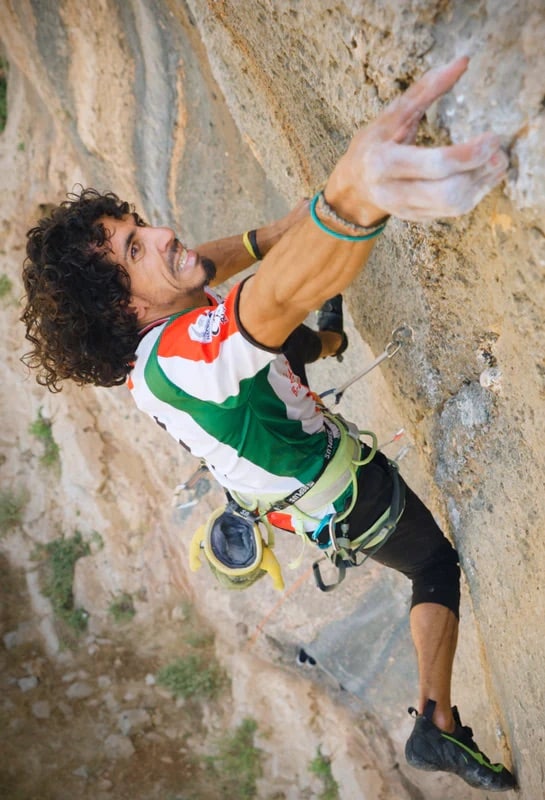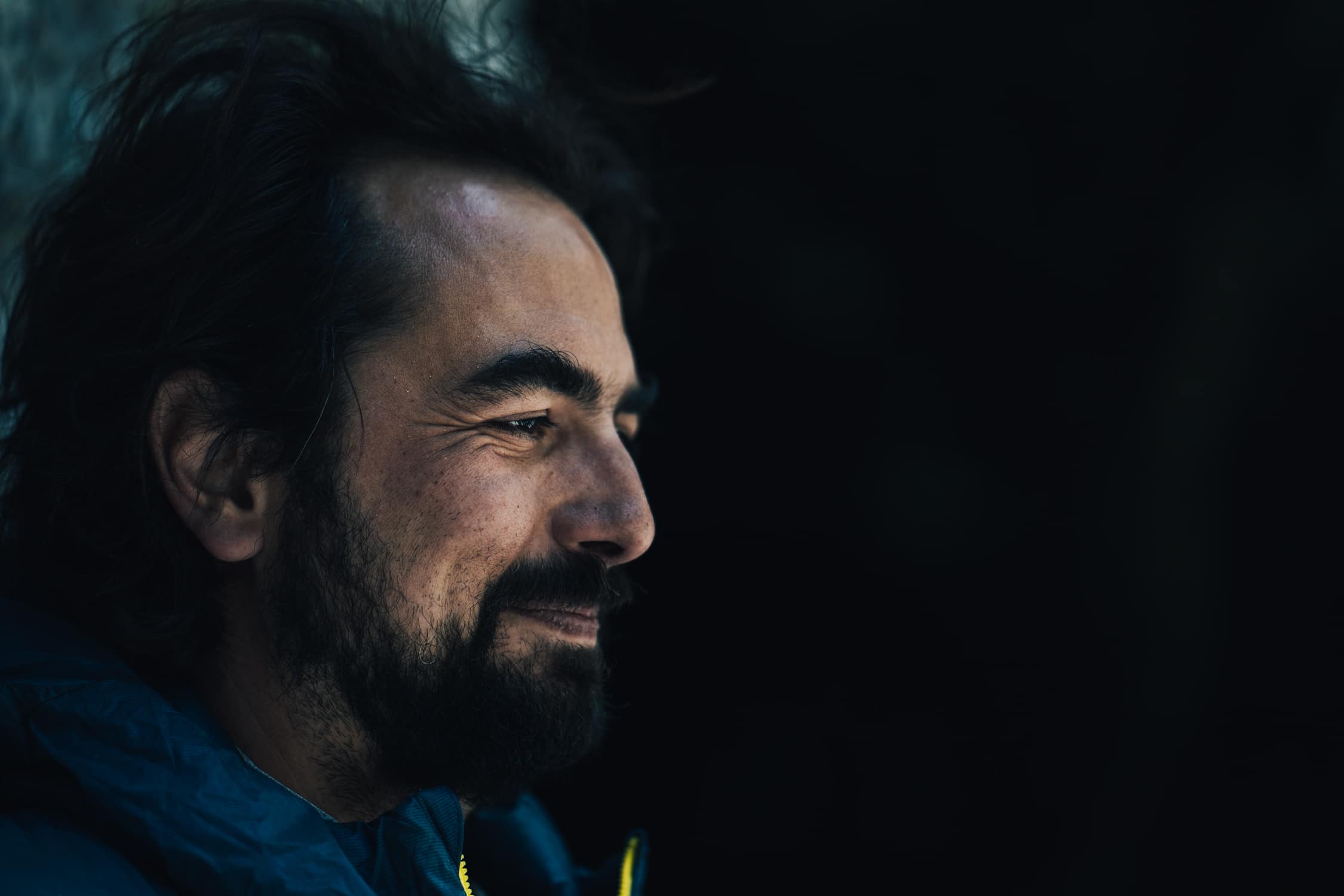I never expected that a film about rock climbing in the occupied West Bank of Palestine would ever receive so much attention and acclaim, especially more than a year after its release. The film, “Resistance Climbing,” is one in which I play a small part as a narrator but it’s not a film about me; it’s a film about the climbers in Palestine and the story of how they find joy and meaning in something as frivolous as rock climbing amid the insufferable circumstances being imposed upon them by their occupiers.
The film has received a bunch of awards, including: Best Climbing Film at Banff; the Charlie Fowler Best Adventure Film award at Mountainfilm; Best Documentary Short Film at the Chicago Palestine Film Festival; an Audience Choice at a 3,000-person auditorium in Grenoble; and a dozen or so more awards at various film festivals around the world.
The film, which is free to watch online, has also been being screened at dozens and dozens of local community events, fundraisers, and student encampments protesting the ongoing genocide in Gaza. I’ve been asked to Zoom in to many of these events, and I’ve been speaking to folks all over the world about the film, giving updates about the climbers in the West Bank, and trying to feel like I’m doing … something, even if it’s nothing, even if it feels futile and hopeless.
The past seven months have been very difficult, to say the least. I never know what’s going to get me. For the first few months, I’d just start sobbing when I’d see the videos of kids being pulled out of bomb-strewn rubble, getting amputations without anesthetics, their phosphorous-scorched skin, their hollow stunned faces as they look around at a world in which their parents are now gone and all that’s left is a wasted, crumbling hellscape. I hate to say it but I’ve become more desensitized to the images of grey, lifeless child-corpses being carried through the streets in their parents’ desperate arms. These images are ones I have been seeing daily on social media, sandwiched in between soft-core thirst traps the algorithm serves, reminding me every day that the Hunger Games dystopia is actually all of our real lives.
Now, it’s harder to predict what’s going to make me spiral. Hearing the callous, cruel words of some Republican senator just casually and gleefully saying he hopes they “kill ‘em all” got me good the other day. The report about using drones that emit the sounds of crying babies in order to lure unsuspecting Palestinians out into the night to shoot them is certainly up there among the most disgusting things I have ever heard. But now, more than 200 days into this atavist rampage, what hits me hardest is all of the lying I hear from people desperate to justify the unjustifiable. Lies about how every expression of Palestinian support is actually proof that antisemitism is everywhere. Lies about who is the victim. Lies about the scale of the death. Lies about history starting on 10/7. Lies that dress up justifications for genocide in the language of empathy, so as to preserve the biggest lie of all, that you are decent and moral person animated by a righteous cause and that this “war,” awful though it may be, is really just a simple necessary evil to be soldiered through in order to achieve the Zionist dream, as Bari Weiss so nakedly admitted, back in 2021, writing about another, different slaughter of Palestinians fighting for their freedom.
“Some of these people are entirely innocent non-combatants, including children. This is an unspeakable tragedy. It is also one of the unavoidable burdens of political power, of Zionism’s dream turned into the reality of self-determination.”
What a dream, indeed. I find it impossible to imagine having a dream whose unavoidable burden includes tens of thousands of dead kids, a decades-long oppression and military occupation, apartheid, stealing land, and the embrace of fictional religious narratives and a selective reading of history. This week commemorates the 76th anniversary of the Nakba, when 750,000 Palestinians, including my own family, were removed from Palestine in order to make way for Zionism’s dream. How much longer will people be willing to pursue this dream, knowing its burden includes such “unspeakable” tragedies?
I am convinced these positions are only possible for people to hold when they view Palestinians as less than human. Many Zionists just openly state as much. “We are fighting human animals,” Yoav Gallant, defense minister, said. Upon seeing an image of Palestinians in Gaza on the beach, an Israeli journalist was so upset that his country’s genocide wasn’t working fast enough that he wrote, “These people there deserve death, a hard death, an agonizing death, and instead we seem the enjoying on the beach and having fun.”
I assure you that their lives aren’t “fun” right now, but OK.
I return to this strange question of why a film about rock climbing has found new life amid such genocidal rhetoric, and of course the answer is obvious: Resistance Climbing is a film that humanizes a group of people who are reliably—and necessarily—dehumanized by the forces that seek to eliminate them—their culture, their history, their presence—from historic Palestine. None of that would be possible if you actually viewed Palestinians as real people who want to flourish in all the weird and beautiful ways that human beings want to flourish: through art, philosophy, music, culture, and, yes, pursing silly things like rock climbing.
I feel proud that our film captures that humanity because it feels so urgent right now. It’s so important, and so absent the main narrative that equates millions of people with diverse beliefs and opinions, hopes and dreams, down to just simple subhuman obstacles that need to be removed in order to make way for The Dream.
The core message of our film, that climbing has the power to be a transcendent force for self-empowerment and deep meaning, remains true even though I find it hard to feel that day to day as we continue to watch this brutal attack and ethnic cleansing campaign unfold in real time. Climbing matters. But climbing only matters insofar as it’s important to people. Real people, including Palestinians.




0 Comments